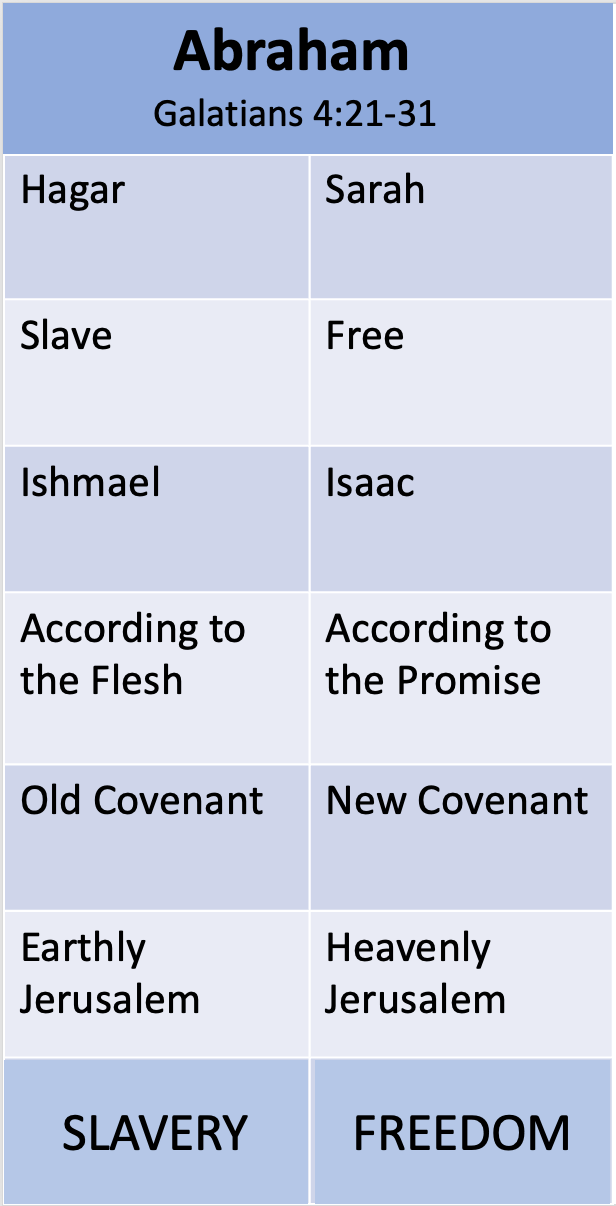Scripture: Galatians 4:21-5:1
SERMON SUMMARY
Why is it that we who are sons and daughters of God—we who should experience more freedom than any people on the face of the earth—why do we actually experience so little freedom? Why do so many Christians, so many of us, gratefully enter into a relationship with Christ by grace through faith, but then, somewhere along the line, we end up trying to live the Christian life by obeying rules and practicing principles? Those are the questions we will look at today. And, the answer comes from a very strange passage that, at first read, leaves us scratching our heads. Believe it or not, the answer may have to do with how we’ve come to understand our Bibles.
SERMON SCREENSHOTS & KEY POINTS
Many people say, “I love Galatians,” but what they really mean is, “I love Galatians chapters 1-2 and 5-6, not so much chapters 3-4—especially, chapter 4, verses 21-5:1. Paul seems to go beyond the bounds of the normal, straightforward interpretation of Scripture into the land of allegory, and that can be confusing and even disturbing to us. Don’t panic. I promise you that after we work our way through this passage, you’ll see that it really does have a very simple, straightforward point.
We begin by looking at the concept of "imprinting" as observed in Graylag Geese—where young goslings attach to the first object they see, often mistaking it for their mother. We will see how this can be an analogy for how Christ-followers may cling to distorted perceptions of their relationship with God, influenced by early teachings about law and works, and maybe even a skewed view of what the Bible is really all about.
As we’ve already seen in Galatians, Paul addresses believers who initially embraced a by-grace-through-faith-way of salvation but later reverted to the belief that our obedience to “law”—to rules and rituals—dictates their standing with God. Paul wants us to see that true freedom comes from accepting God’s grace and living by His promise rather than following strict religious rules.
The difficulty in this passage comes from what Paul calls an “allegory”—contrasting two women from the OT, Hagar and Sarah. Paul says these two mothers represent two covenants—one of slavery under the law and the other freedom through God's promise. And he’s asking the question: “You may claim Abraham as your father, but who’s your mother?”
His answer to this question actually ties the whole Bible together—from Genesis to Galatians, so to speak. And it shows us that Scripture is not to be taken as a rulebook to live up to but rather as a love story to live into.
Abraham (Galatians 4:21-31)
Hagar | Sarah
Slave | Free
Ishmael | Isaac
According to the Flesh | According to the Promise
Old Covenant | New Covenant
Earthly Jerusalem | Heavenly Jerusalem

*We are a church located in Greenville, South Carolina. Our vision is to see God transform us into a community of grace passionately pursuing life and mission with Jesus.